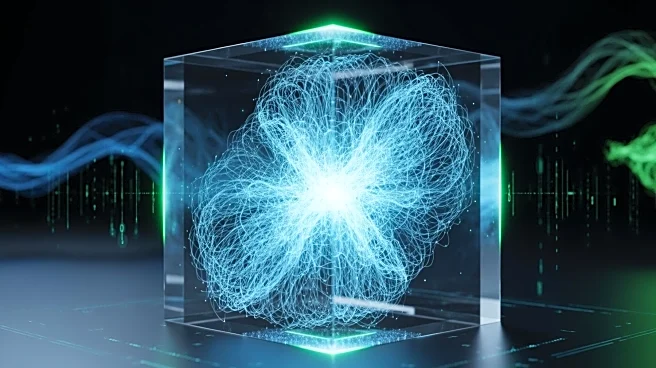What's Happening?
The development of biological data centers is set to transform drug discovery by providing standardized human tissue models for testing. These centers offer robotic systems that sustain thousands of human tissues, which can be dosed, bleed, and heal,
providing a more accurate representation of human biology compared to traditional animal models. This infrastructure allows for systematic feedback, enabling intelligence to move beyond proxies and making drug discovery predictable by design. The U.S. is urged to invest in this infrastructure to maintain leadership in medicine, as other countries, notably China, are advancing rapidly in this field.
Why It's Important?
Biological data centers represent a significant shift in drug discovery, offering a more reliable and humane alternative to animal models. By using human tissue models, researchers can better predict how drugs will behave in humans, potentially reducing the high attrition rates seen in clinical trials. This approach aligns with ethical considerations and economic efficiency, as it may lower costs associated with late-stage trial failures. The U.S. must invest in this infrastructure to remain competitive in the global pharmaceutical industry, ensuring that future medical advancements bear an American signature.
Beyond the Headlines
The establishment of biological data centers could lead to a paradigm shift in drug development, where clinical trials become confirmatory rather than exploratory. This change may foster greater collaboration between researchers, regulators, and investors, as the focus shifts to human-relevant evidence. The ethical implications of reducing reliance on animal models could also influence public perception and policy, driving further investment in human tissue-based research. As this infrastructure becomes more widespread, it may redefine the standards for drug approval and development, setting a new benchmark for innovation in medicine.















